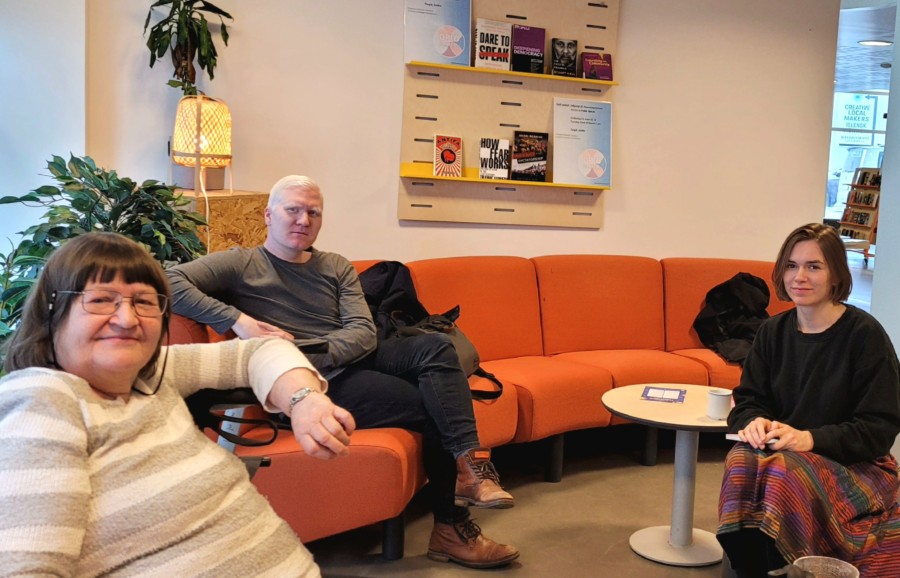
Access to public spaces | Opið samtal
Access to public spaces is determined by a number of factors. The issues of accessibility concerns both the design of buildings and ways of transport to it. It is also an issue relating to information on what awaits you on location. Was it expected that you would be using the space?
Hlynur Þór Agnarsson, an active member of the Icelandic Association of the Visually Impaired (BIAVI), Birna Einarsdóttir, who has devoted herself to fight for the right of physically disabled persons with OBI - The Icelandic Disability, and Anna Marjankowska, a labour organizer, researcher of modern working conditions, educator, care sector worker and a social activist who is engaged in Slagtog, a queer- and women-led feminist organisation working in the field of primary prevention of gender-based violence in Iceland.
Uncertainty in what can be expected in a new place can hinder you access to it as well as your expectations towards the environment - is it safe? Information on ways to get to a place, no matter how you want to get there, are vital. And once you are there, you need to see how you can find what you are looking for. If these information are lacking and it is not expected that you need to access them, that is hindering you accessing the space. Accessibility is to know that it is expected that you use the space, no matter if you move around by foot or use wheels or assistance from other people to make your way around the space.
Thank you for taking part in the discussion. We are open to new ideas on how to create a platform for active citizenship and democratic discussions.
What is Opið samtal? A conversation platform for an open discussion about issues relating to rights, active citizenship and equity in access to society.
Program of Opið samtal
Further information
Dögg Sigmarsdóttir
Project manager | Civic Participation
dogg.sigmarsdottir@reykjavik.is